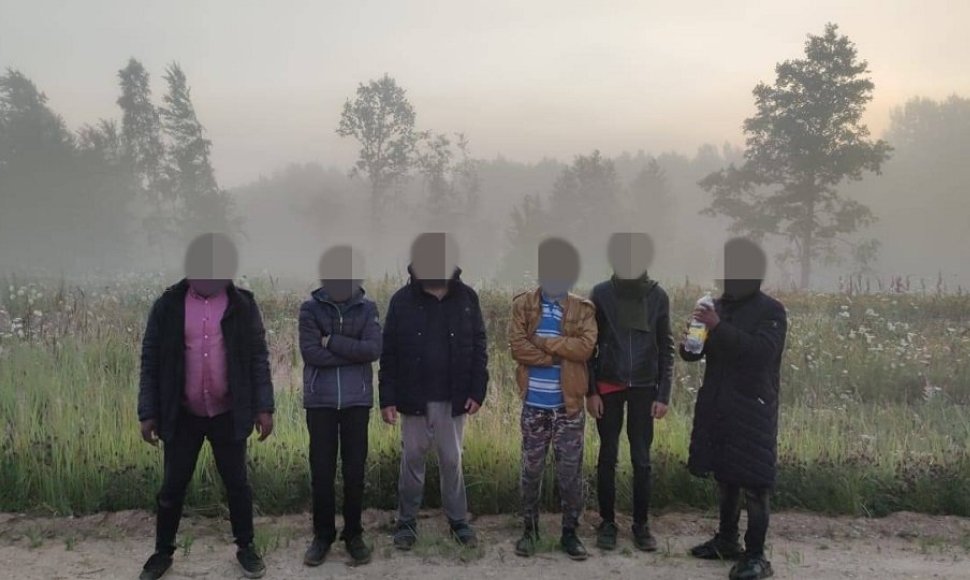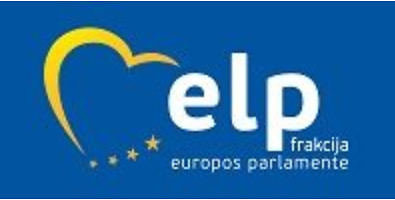According to the MEPs, the crisis that’s currently struck Lithuania is definitely related to hybrid warfare on the part of its neighbouring countries Russia and Belarus. Individuals are being illegally sent into Lithuania through its border with Belarus after being flown in from Turkey, Iraq and other countries. Is this crisis akin to those faced in waves every year by the European Union’s southern states? According to R. Juknevičienė, only when you reach a diagnosis can you find a treatment.
Thus, it is crucial to answering as to why this is happening, what the goals behind it are and why it is happening only in Lithuania.
A. Kubilius believes that the answer is obvious – it is done in pursuit of political goals. “It is entirely clear that such migrant flows are occurring by the will of Lukashenko, coordinated with the Kremlin or being tasked by it. On the one hand, the aim is to probe whether the Lithuanian budget can endure it, whether we will have where to house the refugees.
However, a no less important political aim is to cause discontent among the people in Lithuania, to incite as many discordant voices as possible. Most importantly though – for there to emerge distrust in our core geopolitical stance that democracy in Belarus and Russia is our essential strategic goal. This would allow achieving security in our eastern neighbourhood and this is crucial not only for those countries and their citizens but also for us and the entirety of Europe. Thus, we must view this as hybrid warfare, which pursues these political goals,” A. Kubilius said.
While hybrid warfare is more difficult to distinguish than its traditional version, it does not change the essence – it is also dangerous to state stability and geopolitics. According to A. Kubilius, it must be combatted resolutely: “One response lies within Lithuania itself – making arrangements, stabilising the situation with the refugee influx, complying with international legal norms, but concurrently pursuing a clear goal of preventing those organising such refugee flows from achieving their political goals.
This demands rapid solutions, which are currently being employed: strengthening physical border protection, handling the matter of settling the refugees in tent towns and other premises, dealing with the Iraqi and Turkish governments regarding readmission.
The only long-term cure from such problems and woes is democracy in Belarus. For the people seeking change and democracy in Belarus to obtain all of it. This is a task for Lithuania and our position in our confrontation with Lukashenko.
Just like the forced aircraft landing, this hybrid warfare against Lithuania is, in my opinion, a response from Lukashenko. Thus, we must redouble our efforts to convince the EU and the entire democratic world that even stricter measures must be employed and that we must cease with this authoritarian regime, which is turning into a terrorist one, once and for all,” A. Kubilius said.
According to R. Juknevičienė, the migrants are being leveraged as a hybrid warfare tool in an effort to incite chaos, get revenge and turn the Lithuanian people against their government. The MEP applauded Lithuania’s current foreign policy:
“Minister of Foreign Affairs Gabrielius Landsbergis entered the ranks of EU foreign ministers very clearly as if a comet or a star. He is heeded and he is especially active. This is why local figures were mobilised in Lithuania precisely against G. Landsbergis and the direction maintained by this government. The aftermath of these actions is already becoming visible in Lithuania’s regions, where certain mayors are very loudly and arrogantly beginning to condemn Lithuania’s foreign policy.
In this case, I would like to briefly turn to history because, as Cicero once said, “To be ignorant of what occurred before you were born is to remain always a child.” Thus, these activists are making childish mistakes and repeating them. Many thought that Hitler could also be stopped by talking with him, abstaining from criticism. I am convinced that it is essential for Lithuania to currently maintain a strong value-based policy, one that would have a clear final strategic goal for our neighbours to be democratic.
We do not want an Iron Curtain though. We lived behind the Iron Curtain, just on the other side and now, it is rising up next to us again,” R. Juknevičienė said.
According to the MEP, we should also remain mindful of the exercises Zapad 2021. Back in the exercise in 2019, there were hybrid warfare elements and now, they will only increase in number.
The European Parliament Foreign Affairs Committee concluded voting this week on a report drafted by A. Kubilius on what strategy the EU should employ regarding Russia. It reiterated numerous important matters that are already known.
“The dictators are bound together like Siamese twins. It is evident that Putin views Lukashenko’s struggle against democracy as something of a testing ground. It is yet another reason as to why we not only have no right to change our policies in terms of supporting democracy in Belarus, but also the entirety of the EU must see an even greater challenge in Eastern Partnership policy.
If Lukashenko succeeds in his hybrid warfare against Lithuania and if Lithuania falters, begins doubting, changes the course of its foreign policy, with some proposing to dismiss the foreign minister and promptly apologise to Lukashenko and support him, it is clear that it would be Putin who would value this the most.
In such a case, we could expect that he will leverage the exact same instruments – hybrid warfare, exploiting refugees at a much larger scale – in the near future and not only against Lithuania alone, but against the entirety of the EU,” A. Kubilius said.
Lithuania must currently not only halt the influx of refugees but also resist hybrid attacks and hybrid efforts, instead seeking increased Western pressure against both Lukashenko and Putin. Otherwise, not only Lithuania but all of the EU will face much larger problems.
“There are also benefits to be seen in this situation – it is a test of how we can manage such challenges. Putin is testing and probing as to how Europe and Lithuania can endure. We too have the opportunity to see the simple matter of what is what in Lithuania,” A. Kubilius said.
R. Juknevičienė added that matters were similar in the year 1990 when Yedinstvo demanded a change in Lithuania’s course.
Nowadays, it is described as a proxy in English – assistants of a sort. “We spoke about how we should observe who will jump to help out Lukashenko and Putin in the hybrid warfare context. Immediately the next day, Karbauskis, Radžvilas and Sinica surfaced with their declarations the next day, protests were organised and such. It only serves to amplify Putin and Lukashenko’s demands,” R. Juknevičienė said. Echoing this, A. Kubilius observed that it’s not bad the masks are falling.
The politicians of the National Alliance found numerous links to Marine Le Pen’s National Assembly in France. One can only hope that the sources of financing differ.
In terms of the current situation, R. Juknevičienė found the president’s position lacking, while A. Kubilius said that he no longer expected one: “We know we have a president and that he likes being the president.”













